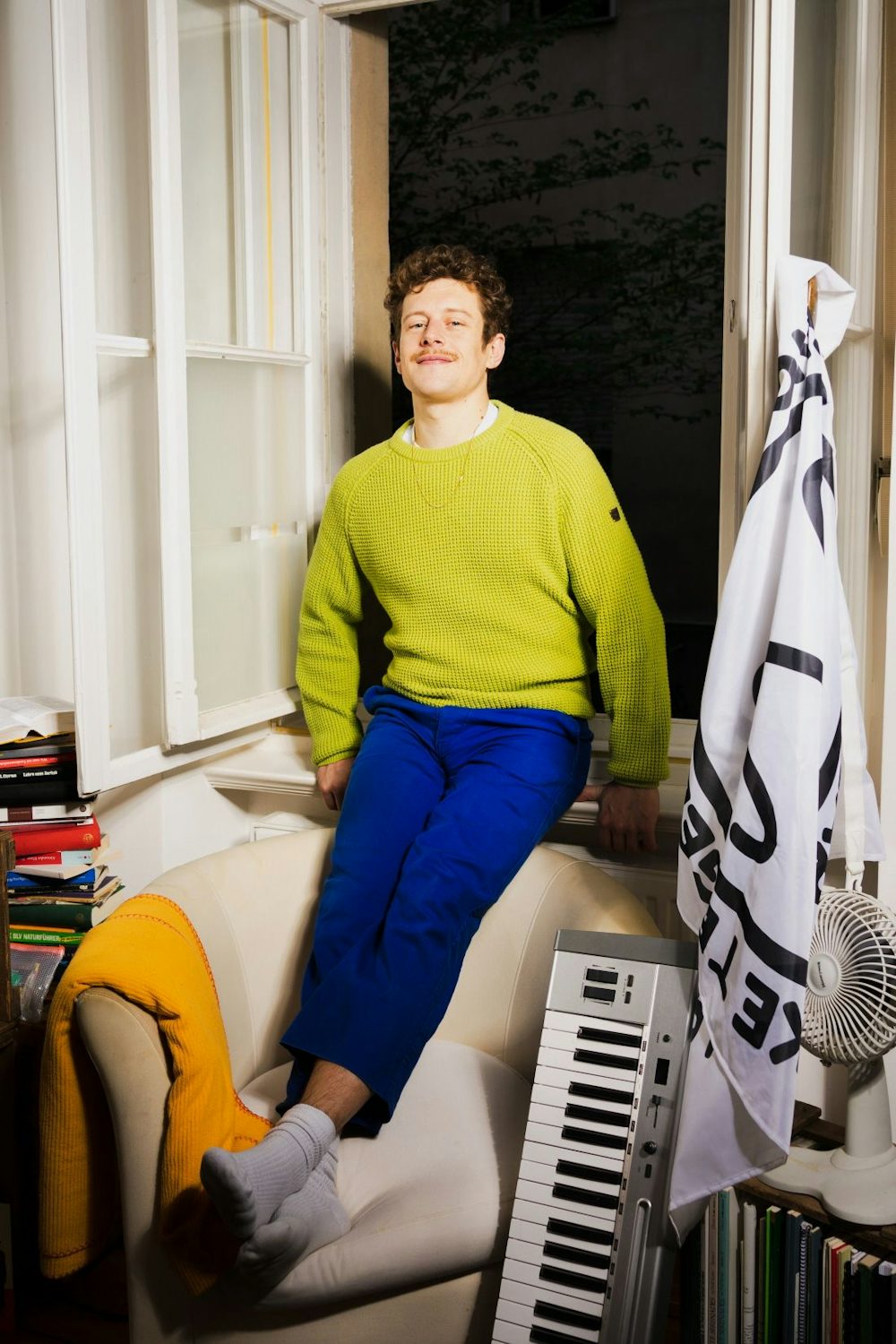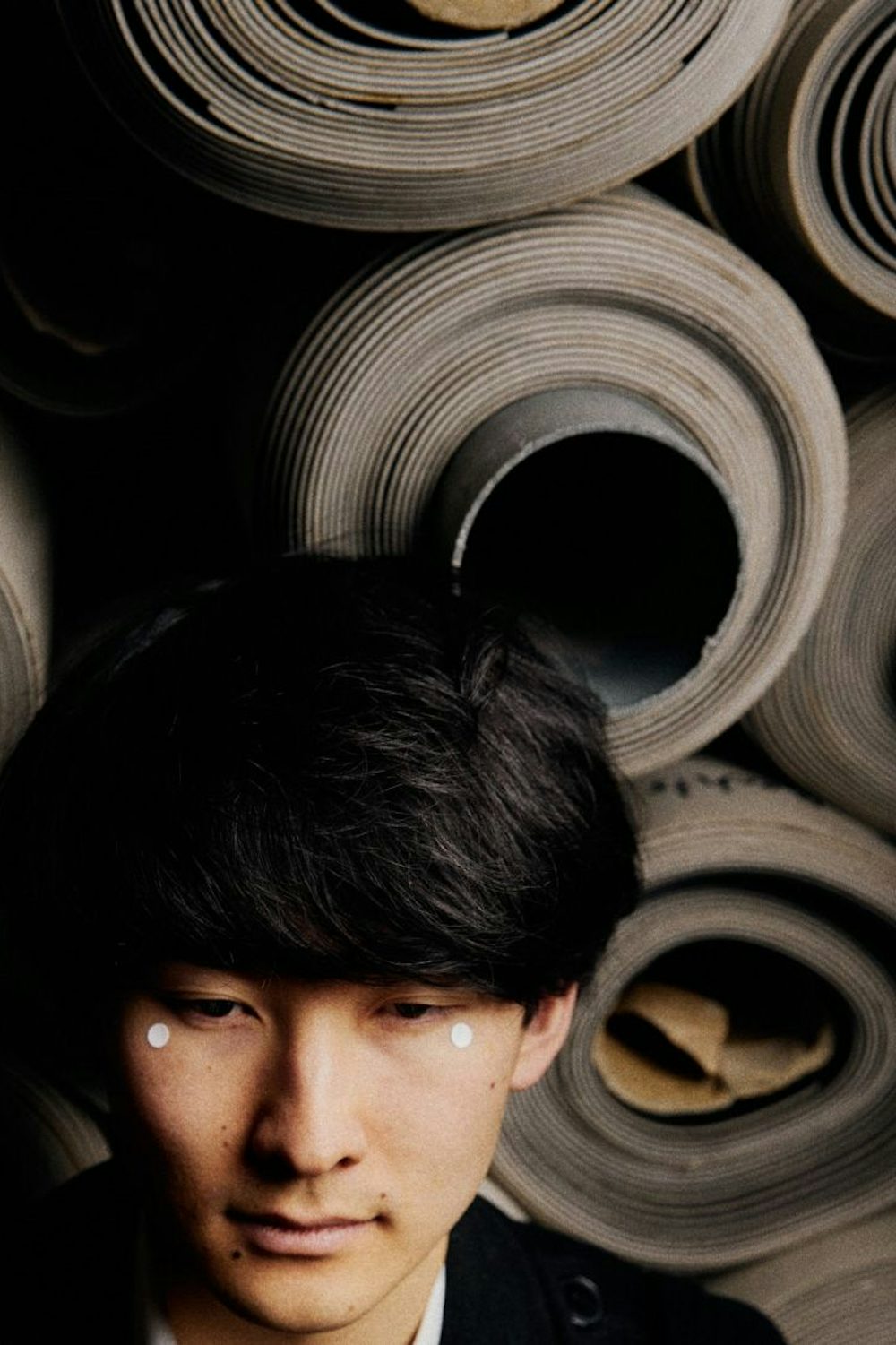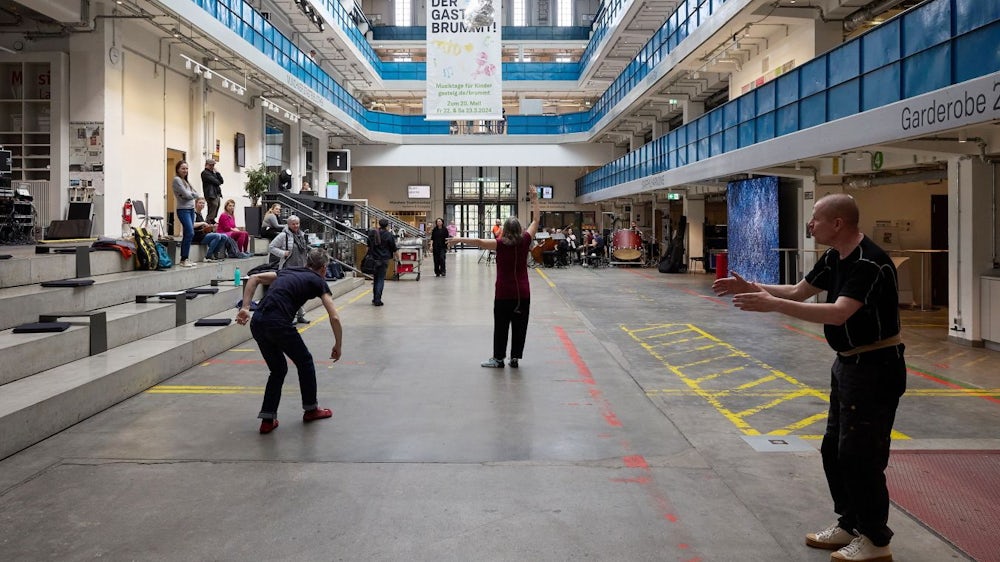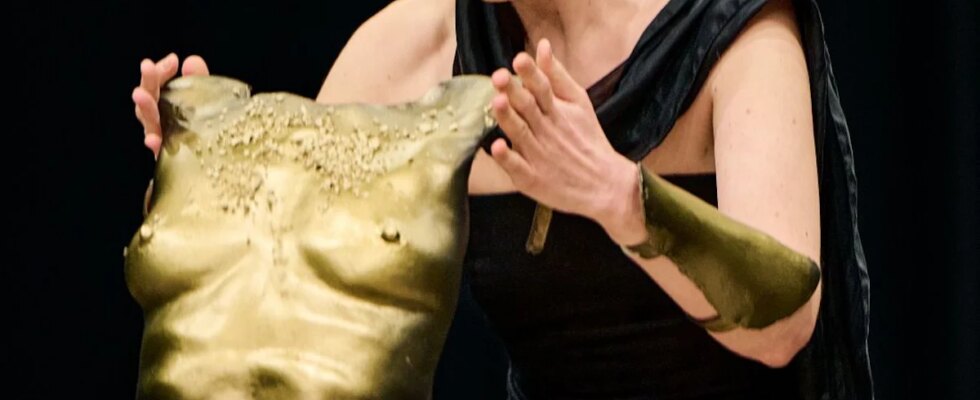Women on the run
She probably died on the way to Rome. But no one knows for sure how things ended for Zenobia, the ruler of Palmyra who was defeated by the Roman emperor in the third century. The Italian composer Lucia Ronchetti and with her Leyla, the protagonist of “Searching for Zenobia”, set out to find the historical figure of mythical proportions. The musical theater piece, a collaboration with the Braunschweig State Theater, to which Mohammad Al Attar contributed the libretto, musically interweaves the levels in a complex play with the past – Tommaso Albinoni’s baroque Zenobia opera appears – and with a foreign present that is made audible through traditional Syrian music, performed by the Syrian singer Mais Harb and the percussionist Elias Aboud.
Zenobia: Fri., May 31, and Sat., June 1, 8 p.m., Sun., June 2, 5 p.m., Muffathalle (Zellstr. 4), tickets for all performances of the Biennale at www.muenchenticket.de
Mini opera in a luxury limousine

The Munich composer and performance artist Nico Sauer took the festival motto literally. In his back seat theater “Rüber” the transport of people becomes a musical event. While the audience is driven through the city in the back seats of a Bavarian luxury limousine, the car interior is transformed into a temporary mini-opera through a live performance. The Auto-Theater starts several times a day from the former Gasteig, now the Fat Cat. The conditions in the building’s glass hall are also made to dance. The American Alvin Curran has written music for self-playing piano. In his installation “Footnotes 1.2”, this piano hangs from the ceiling and from time to time invites trumpeter Marco Blaauw to a dialogue.
Cross: Sat., June 1st, to Tues., June 4th, and Thurs., June 6th, to Mon., June 10th, departures approximately every 45 minutes between 2pm and 8.45pm from Fat Cat (main entrance), Rosenheimer Straße 5.
Footnotes 1.2.: Installation accessible from Sat., June 1st, to Mon., June 10th, between 8 a.m. and 11 p.m., performances on Mon., June 1st, 3 p.m., Tue., May 2nd, 4 p.m., Friday, June 7th ., 5 p.m., Saturday, June 8th, 6:30 p.m. and Sun., June 9th, 6 p.m
Everything flows
Water is a basic metaphor: traffic flows (or not), people flow through a pedestrian zone, flows of goods are interrupted. The composer Kai Kobayashi and Simone Aughterlony therefore sought a sound and visual examination of the topic of water. “Shall I Build a Dam?”, which will be played at the Deutsche Oper Berlin after the premiere in Munich, questions the relationship of bodies to the element in all its aggregate states from a posthuman feminist perspective. Everything flows: water changes, gender roles merge.
Shall I Build a Dam?: Sat., 1 June, 6 p.m. and Sun., 2 June, to Tues., 4 June, 8 p.m. each day, Schwere Reiter (Dachauer Straße 114)
Sounds in the Isar meadows
“You can’t say: I’m going to the theater, the rag is up and I’m going to let myself be played.” What Manos Tsangaris says about the Biennale in general applies even more to the “Territorios Duales / Doppelter Boden” project. The Bolivian composer Carlos Gutiérrez Quiroga and the artist Tatiana López Churata are sharing their expertise with a group of volunteers who have spent the last few days building trumpets and ocarinas inspired by indigenous instruments. The result will be audible as a mobile sound sculpture in the new Gasteig and the Isarauen.
Territorios Duales: Sun., 2 June, and Sun., 9 June, 2 p.m. and 5.30 p.m., Gasteig HP 8
Virtual Reality in the Engine Room

A former excursion steamer becomes the backdrop for an immersive installation: the engine room of the “Alte Utting” becomes a place to examine the food industry and its interconnections in international politics. Virtual reality glasses are used and combined with live music. It comes from Munich composition students Eve Georges and Jiro Yoshioka. The direction is by Paulina Patzer and Waltraud Lehner, and the musical direction is by Henry Bonamy and Markus Hein.
insatiable: Mon., 3 June, to Thurs., 6 June, 4 p.m., 5.30 p.m. and 7 p.m., Alte Utting (Lagerhausstraße 15)
What luck
The evening-long body trilogy, which the composers Andreas Eduardo and Patrick Frank and the director Georg Schütky have come up with, is also inspired by culinary arts. In the foyer of the Fat Cat, the stations heart, brain and intestines serve as starting points for an examination of the concept of “happiness”. What does the individual need to be happy? What role does the collective play in this? The evening as an artistic kaleidoscope that allows music, theater and discourse to shimmer alongside one another, culminating in a communal dinner.
How are you, how are things: Tues., 4 June, to Fri., 7 June, 6 p.m., Fat Cat (Rosenheimer Straße 5)
Music controlled train station

The second trilogy of the Biennale deals with the burning current question of future mobility, with three productions being brought together under the title “The New Lines”. The “MBE”, which the Berlin opera company Novoflot and the composer Du Yun put at the center of their work, does not stand for the disused Mülheim-Badenweiler railway, but for a transport project that has the maximum broad effect. Joseph-Platz is to be transformed into a music-controlled train station – “The gates are (nearly) open”. In “Turn Turtle Turn” the Finnish group “Oblivia” drills deep into the prehistoric past. The combination of pointed texts, movement and music in the library of the new Gasteig is intended to ask a question: “How did it get to this point?” The Maastricht collective “Het Geluid” is currently exploring the question of how we exist digitally and analogue at the same time (“In Passage”).
The new lines: “The gates are (nearly) open”: Wed., 5 June, Thurs., 6 June, Sat., 8 June, Sun., 9 June, 4 p.m. to 9 p.m., Max-Joseph-Platz; “Turn Turtle Turn”: Wed., 5 June, 4 p.m., Thurs., 6 June, 4 p.m., Fri., 7 June, 3 p.m., Sun., 9 June, 4 p.m., Munich City Library, Gasteig HP 8; “In Passage”: Wed., 5 June, and Fri., 7 June, to Sun., 9 June, 7 p.m. each day, meeting point: Scholastika clubhouse (Ledererstrasse 5)
Space opera with a defect
The last premiere of the festival sets off on a journey into space. Since the earth has been completely devastated, the characters from “Defekt” board a spaceship, but are confronted with problems of their own kind. The space opera, which deserves this name, was written by the young Istanbul composer Mithatcan Öcal, who has been able to make himself heard as an independent voice in the new music cosmos in recent years. The libretto for the space opera was written by the Berlin artist cylixe. When asked about a piece for those interested in the Biennale who still need access to new music, Manos Tsangaris says: “I would unreservedly recommend ‘Defekt’.”
Defect: Saturday, June 8th, to Monday, June 10th, 8 p.m., Muffathalle (Zellstraße 4)

